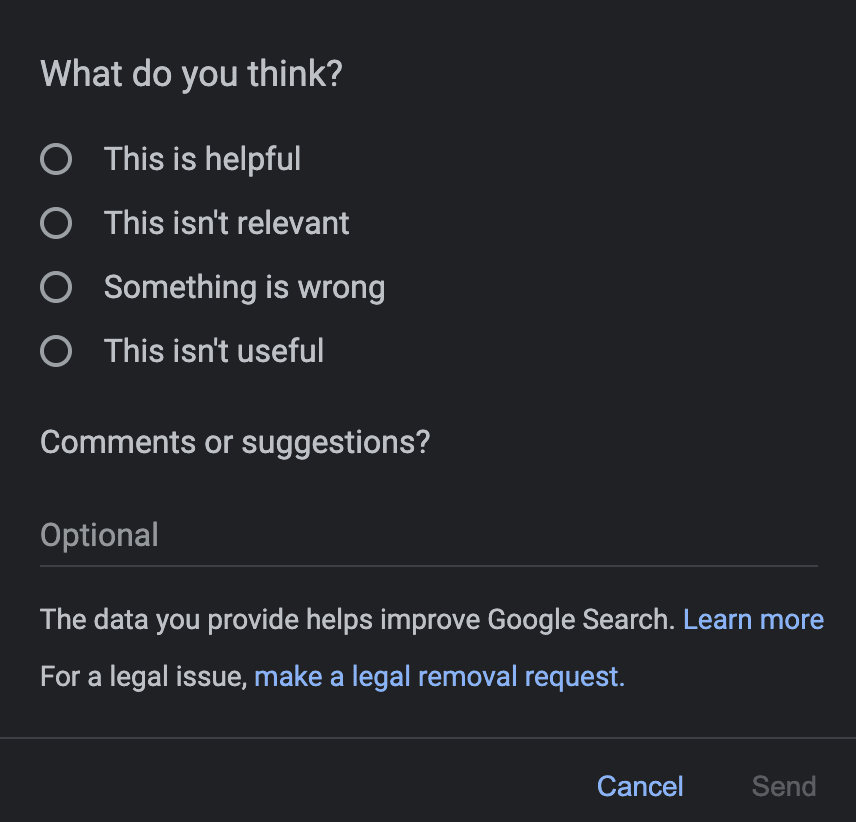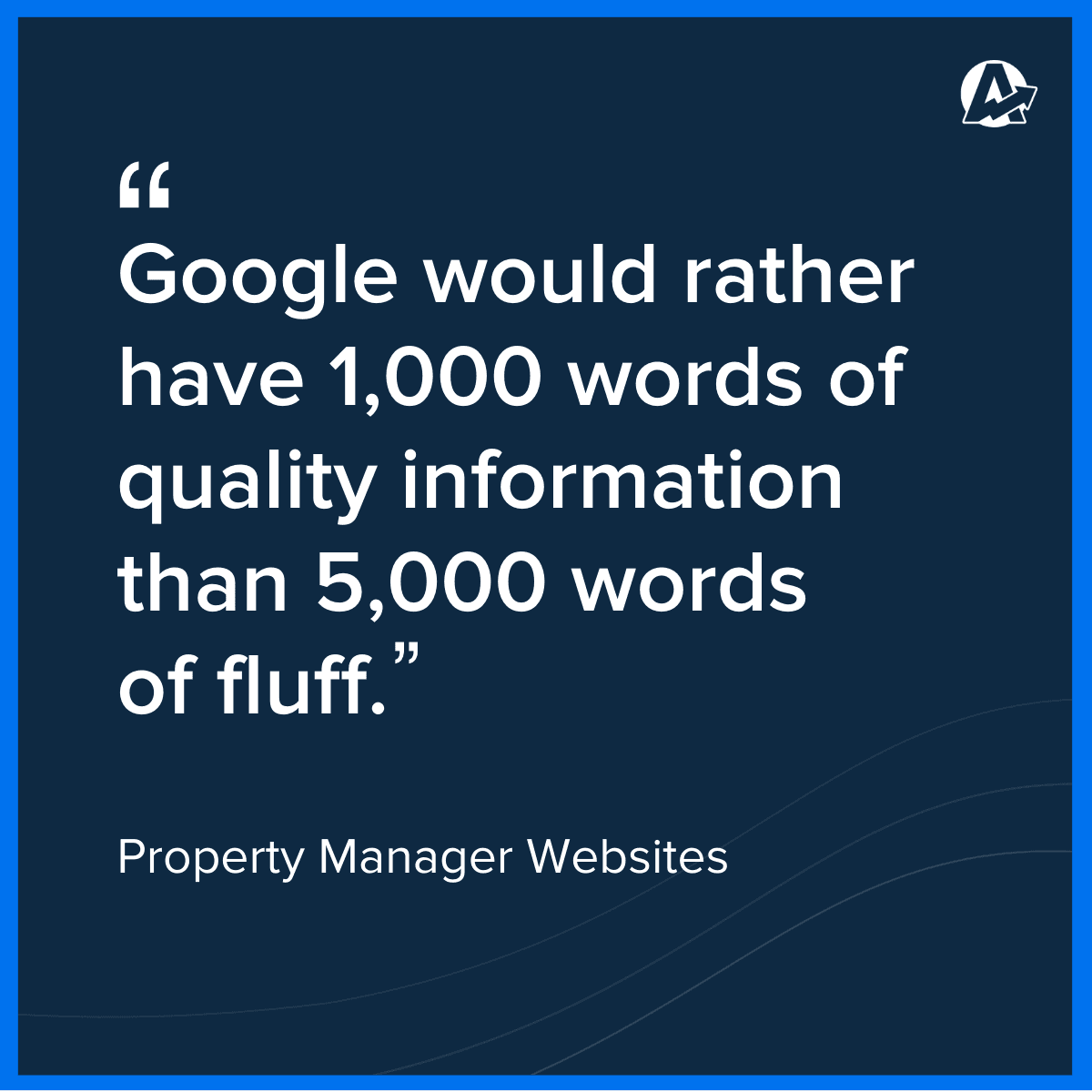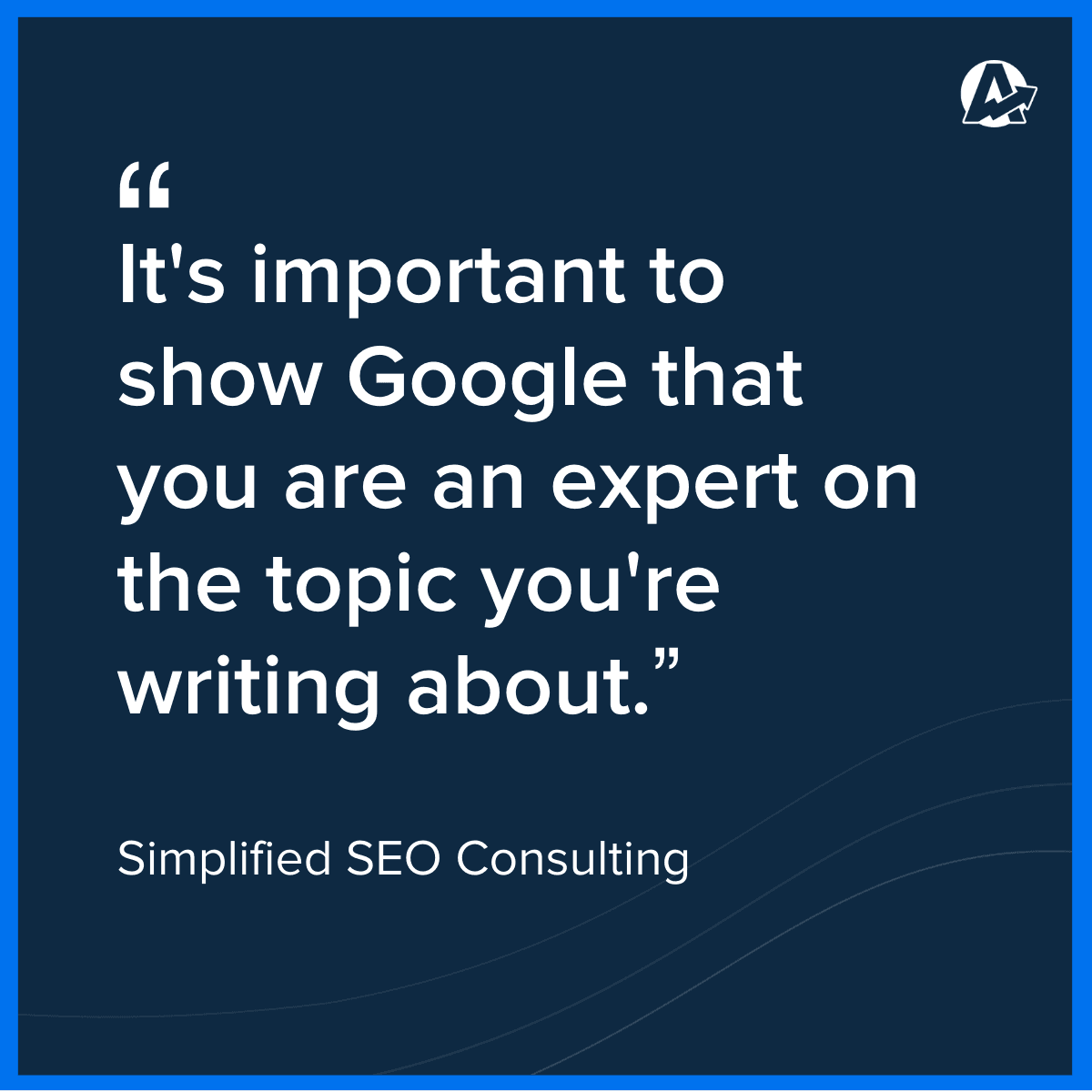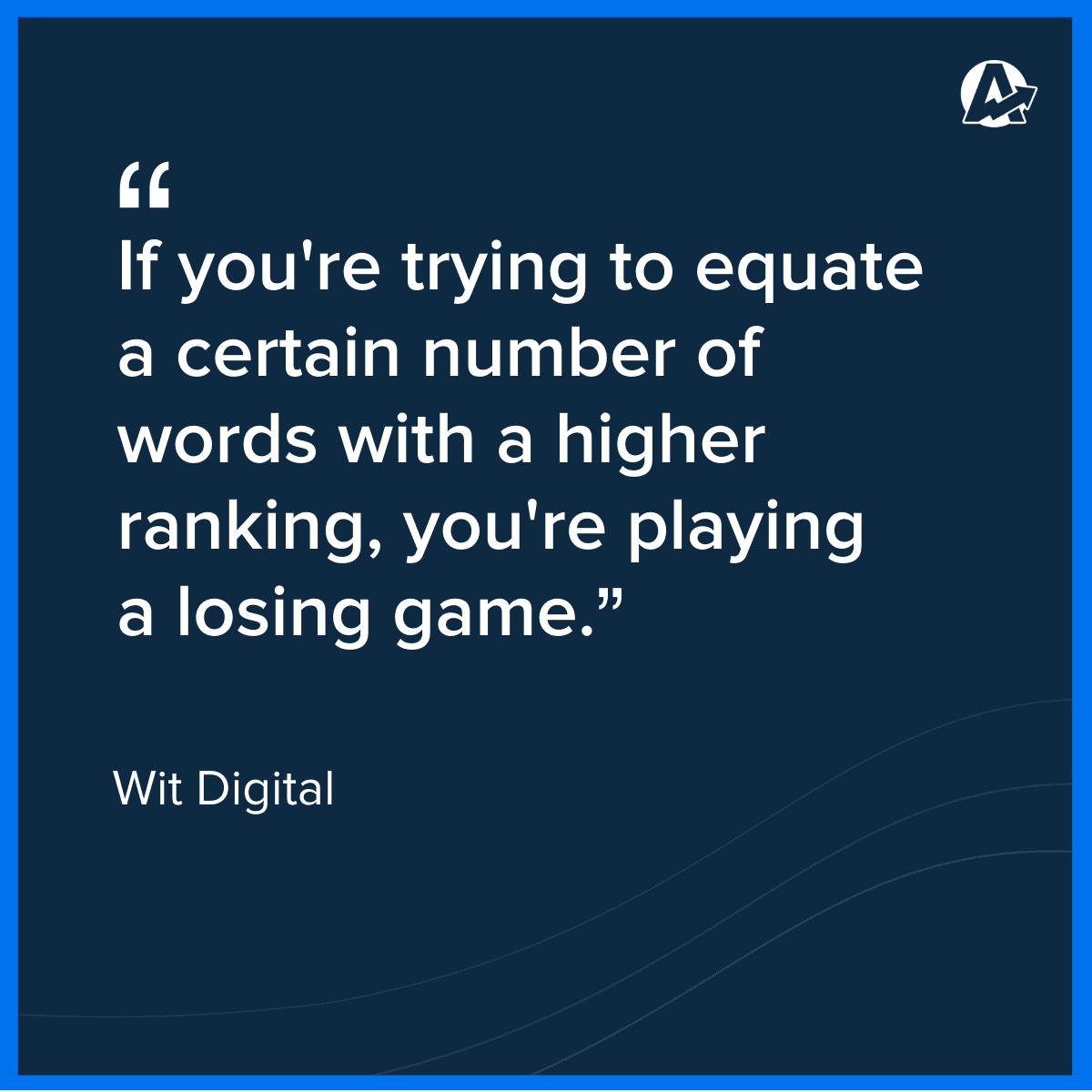Table of Contents
QUICK SUMMARY:
In SEO, word count balances relevance and detail to meet user needs. Effective content responds to search queries with thorough, accessible information. High rankings on Google's SERPs hinge on offering value, not just length. This guide explores the nuanced role of word count in SEO, providing clarity amidst common misconceptions. Dive deeper to enhance any content strategy.
There has been a lot of debate over the years about how long your content needs to be to rank keywords on Google to increase search engine visibility. And that debate has heated up again with recent algorithm and guidance changes posted by Google. Some people believe you need to set a minimum word count for SEO, while others think content length doesn't matter. So, what's the truth?
While it is true that Google does take into account the length of your content when determining your keyword ranking, that has more to do with how informative the article is and how well it answers the user's question.
Here's an overview of the typical word count for different types of content, keeping in mind that these are just general SEO and content best practices:
Type of Content | Best Word Count & Why |
|---|---|
Articles That Address a Very Specific Topic | Shorter (500-1000 words): The specific nature of the content means it can be covered in a concise manner. |
Ultimate Guide Posts | Longer (2000-5000 words): These are comprehensive, in-depth posts that cover all aspects of a topic. |
Opinion or Editorial Pieces | Medium to Longer (1000-2500 words): Length can vary depending on the complexity of the topic and the depth of analysis. |
How-To and Tutorial Posts | Medium (1000-2000 words): These posts need to provide detailed instructions but also be concise enough to be easy to follow. |
News and Trend Analysis | Shorter to Medium (500-1500 words): These are usually timely posts that provide a concise overview or analysis of current events or trends. |
Listicles | Medium (1000-2000 words): Length depends on the number of items in the list and the amount of detail provided for each item. |
Personal Stories or Anecdotes | Shorter to Medium (500-1500 words): These posts often share a personal experience or lesson, which can usually be done concisely. |
Reviews and Comparisons | Medium to Longer (1500-3000 words): These posts often need to provide detailed information and analysis of each product or service. |
Product Description Pages | Shorter (300-500 words): These need to provide essential information about the product in a concise manner for better readability. |
Company Pages | Shorter (300-500 words): These provide high-level information about the company, such as its mission, values, and history. |
It's important to note that while word count can influence SEO, it's not the only search engine optimization factor. Search engines prioritize high-quality, relevant content, so it's critical to focus on providing value to your readers above all. This could sometimes mean going beyond the typical average word count. Always remember, the main goal is to thoroughly cover your topic for your audience on that target keyword, not simply to reach a specific word count.
So, when it comes to SEO, there is no clear answer as to whether or not word count matters or if there is a minimum word count required to rank.
In Google's eyes, a shorter article that gets to the point is better than a long blog post filled with fluff and redundant content that doesn't help the searcher find what they are seeking.
Just take a look at the Top 10 results for a given topic, and you can see that the word count ranges from shorter (around 1,000 words) to long-form content (over 5,000 words), and the rankings are rarely in order of how many words they include.
Google even removed the section from its official article recommendations page where it used to say "make sure your articles have more than 80 words." Danny Sullivan from Google said on Twitter that they purposefully removed that reference because "people shouldn't be stressing about word count." In the end, the quality of your content is much more important than the average word count. So, even if you have a shorter article, as long as it is high-quality and informative, it can still rank well on Google, and you'll get all the same SEO benefits as a bloated article full of fluff (and perhaps more!). Following a well-crafted content brief that thoroughly covers the topic is far better than writing to a specific, targeted number of keywords.

So, What's the Best Word Count for SEO?
The simple answer: However many words it takes to provide the information the user is searching for.
"Quality over Quantity, Always. Don't waste a reader's time by going into an elaborate story. Answer the question, and get to the point. If the point can be made in 300 words, or 500, that's more than enough."
- Ruben Roel, Investigator Marketing
You need to ensure that your article provides content quality that is relevant and informative if you want it to rank well on Google's SERPs. Although there is no definitive answer as to whether or not word count matters for SEO, we can say for sure that quality trumps quantity every time.

If we can take one note from the feedback tool used by Google search engines results page is that it is constantly changing. The page that you are trying to rank must be helpful and relevant to gain the top spots in search results pages.
If the answer a user is looking for is in the middle of your long-form content and it’s hard to find, it is not helpful. For example, if the article is about how mold can impact your sleep, and all you do is tell them why the should contact a mold specialist, it is not really helpful or useful.
Google has implemented several different tools to gather feedback. but the main thing they are trying to understand from the user is if the content is “helpful” and if they are “satisfied” with the quality of the content the search results provided.
It's important to understand that word count is a relative metric. Before writing anything, you want to see the top 5 ranking pages for that term and get the average word count. That average indicates how long an article should be to fully cover the topic.
- Mariano Rodriguez, CEO, LawRank
But to reinforce the comment above, minimum word count is not the determining factor here. It is how much content is needed to cover the topic in a way that is better and more thorough than the competition.
What Is the Best Word Count for Blog Posts?
Different types of content will require a different approach when it comes to the amount of information (aka how many words) you will need to be considered relevant. And, simply by its nature, the more information you provide, the longer the word count will become.
Word count is just one element that helps the crawler to identify how in-depth the content is. Google would rather have 1000 words of quality information than 5,000 words of fluff. Instead, focus on the purpose of the content. Meet the user's needs instead of worrying about word count.
- Kristen Ewen, Director of SEO, Property Manager Websites
For example, as outlined above, a post that answers a VERY specific question can (and probably should) be shorter. Nobody wants to read a 1400-word preamble when they are trying to figure out how to perform a specific function in Google Sheets. That's why it's important to understand the search intent behind the target keyword before you start creating the web page.
On the other hand, if your goal is to give a thorough overview of a complex topic, then long-form content is probably the way to go. You'll need more words to explain the topic in a way that is helpful to the end user. Therefore, a blog post providing an in-depth description of specific SEO fundamentals, such as how to perform an SEO site checkup, should have a target word count of at least 1200 words (probably more).
Again, it comes back to how much information is needed to answer the searcher’s query and not a target number of characters or words.

However, if you’re looking for a general guideline on target word count for blog posts, these are the recommended word counts for different types of articles.
Simple, Focused Blog Posts With Limited Competition
| In-depth, Thorough Blog Posts
| Ultimate Guides
|
|---|---|---|
If you're targeting a very specific question without much competition on SERPs, you can rank with a shorter, to-the-point, blog post.
| When trying to rank for higher-volume keywords with more competition, you must provide useful content that goes deeper than the surface. This would include how-to guides and tutorials.
| To become the authority on a particular subject, expect to put in much more effort. This is especially important if you are writing about a very competitive keyword.
|
Word Count Target: 500-800 words | Word Count Target: 1200-2500 words
| Word Count Target: 3000 - 5000+ words
|
If you're trying to equate a certain number of words with a higher ranking, you're playing a losing game. True, you want a nice, robust webpage full of useful content and plenty of keyword usage, but a higher word count does not equal better content nor better SEO. Of course, this also depends on the type of content that you're writing.”
- Rachel Jackson, Lead SEO Specialist, Wit Digital
Word Count for Product or Service Pages
Although most of the discussions around word count for SEO are connected to blog posts, all types of content on a website should be optimized for SEO and User Experience.
But, no matter what kind of web page you are creating, the general credo remains the same. For pages that promote a product or service, the goal should not be to reach a certain word count but rather to give enough information for potential customers to get all their questions answered before they buy.
Competitive SEO best practices do still come into play, which generally means that the higher the competition for your client’s product or service, the more content will be needed to get that “yes, this is helpful to that search query” nod from Google, which often translates to a higher ranking on search engine results page.

Therefore, a general word count target for a product or service page should be at least 300-500 words, or more if needed.
Agency Tip: Localizing your client’s content is a great way to increase relevance without increasing word count. For example, targeting “emergency plumber” will take much more effort in terms of content authority than “South Tampa emergency plumber.” The extra two words will not make a huge difference to word count but will give a much clearer indication regarding who would find that content relevant and helpful.
Do FAQs Count Towards Word Count?
Yes. Google's search algorithm does–typically–count FAQs on a web page as part of the total word count for SEO.
FAQs are a great way to provide additional information about a topic and can help boost SEO if the answers are relevant, helpful, and informative.
Not only do FAQs answer questions potential customers may have, but they can also provide valuable insights into how a company operates and what it offers.
So, use them when appropriate - but don't just add FAQs for the sake of getting more organic traffic.
Agency Tip: If you don't have any Frequency Asked Questions from customers, consider using Google's "People Also Ask" to see what people are looking for as it relates to the topic you're covering
The ability to access detailed answers to frequently asked questions makes it easier for customers to make informed decisions, which in turn can lead to increased conversions and sales.
Additionally, having an FAQ section can boost semantic richness since the information is more comprehensive. Google's algorithms recognize long-form content with comprehensive and helpful information, so embedding a quality FAQ section in your website content can contribute to SEO success.
Creating high-quality FAQ sections should include more than just simply addressing customer queries; it should also provide relevant facts, additional details, and links that further explain the concepts being discussed. This approach helps enhance the overall user experience by making the client’s website more informative and easier to understand.
It's important to show Google that you are an expert on the topic you're writing about, and it's difficult to do that when you're only writing 300 words on the topic. So while the quality of the content matters more than the length, having a higher word count will generally allow you to go further with SEO."
- Jessica Tappana, Founder of Simplified SEO Consulting, Simplified SEO Consulting
And don't forget to use structured data markup so that the Google search algorithm knows they are FAQs.
Are Comments Included in the Total Word Count?
Depending on how it’s coded, Google takes UGC (User Generated Content), such as comments, into consideration when determining word count for SEO purposes and ranking search engine results pages. UGC is any content that has been submitted to the website by users, such as comments or reviews.
Google has stated that they use UGC as an “indicator of quality” and looks at how it impacts the overall user experience. But Google also takes into account the potential for spam, as well as other malicious activities associated with UGC.
For example, comments like “Thanks for the post” are not likely to add value to the article, but an opposing view or an example of how the topic being discussed impacted an individual or business might.
When Google assesses the relevance of short and long-form content, they look at three main factors:
The quality of content
The relevance to the search intent of the target keyword
How engaged users are with it
Content quality is measured by looking at the accuracy of the information being shared, as well as how well-written it is. Engagement is determined by looking at things like the time on the page, bounce rate, number of comments, upvotes, shares, etc., in relation to the amount of time since it was posted online.
The more positive signals a piece of content receives (e.g., people liking, replying, or upvoting a comment), the more likely it is for Google's search algorithm to place it higher on SERPs. And isn't that the whole point of search engine optimization?
On the other hand, if a piece of content is deemed to be irrelevant or low-quality by users (based on their interactions with it), Google will likely not prioritize it when ranking websites.
One of the other benefits of UGC, such as comments, is that users will add additional NLP (Natural Language Processing) keyword variations naturally, based on their own experience.
Not only will your content get longer with comments included, and fresh content and relevant information can be added each time someone else adds additional thoughts or insights. However, you may find the post ranking for keywords that were not in the original post (not that this is always a bad thing!).
Of course, the danger with comments is that they also open up the web page to SPAM and opinions that your client may not want to have associated with their brand.
Agency Tip: For most clients, comments should be moderated before they are published to eliminate junk or SPAM posts as well as those that may offend their target audience.
Overall, User Generated Content plays an important role in search engine optimization, but it can be a bit of a double-edged sword.
6 Effective Ways to Expand Word Count
If you are wondering how to make your word count higher, here are a few ways to increase word count without simply cramming more fluff into your content. Your blog posts aren't pillows, after all–they shouldn't be crammed full of stuffing.
1. Make Your Content Comprehensive
To get the most out of your content, focus on making it comprehensive and detailed rather than writing for search engines. This means that you should provide as much information as possible to ensure users have all the facts they need related to the target keyword and the search intent.
2. Use Long-Tail Keywords
Get more specific with your keywords by targeting longer search queries or “long-tail keywords" rather than single words or short phrases. This will help you rank for more search terms while also bringing higher-quality visitors who are looking for something a bit more specific.
3. Expand Into Subtopics
Instead of covering one topic in-depth, consider expanding into related subtopics to add more value and content to your articles. This long-form content strategy also helps you target more keywords, improving your site’s rankings in search engines.
4. Update With New Ideas
Have some additional thoughts to add to a post that was published a few months ago? Add them! Regularly updating existing content helps keep it fresh and relevant for users while increasing the word count for SEO. It also improves SEO performance by showing that the page is actively maintained and up-to-date with current information.
5. Enable Comments and/or Reviews
As we noted, User Generated Content is a great way to continually expand the content on the page by allowing users to submit their own content. Just be prepared to review, moderate, and filter out a bunch of spammy comments submitted purely to promote or link to other products or services.
6. Get Quotes From Subject Matter Experts
This is an excellent opportunity to add relevant information direct from industry experts. This includes internal subject matter experts from your client’s workforce, from customers who have used the product in unique and interesting ways (e.g., think best practices, recipes, tooltips, etc.), or experts in the field.
Not only does this provide more content, but it is often unique content that nobody else, other than your client, can provide.
Keeping the reader's interest in mind is important for any type of writing, but especially for SEO content. When you're writing for the end user, you need to make sure that your content is engaging and interesting enough to keep people reading. A computer algorithm can be manipulated and tricked, if you're looking for artificial and high bounce traffic, write content for a computer program. If you're looking for genuine traffic that builds an audience and authority, keep their interest in the back of your head as you write. - Ruben Roel, President / Founder, Investigator Marketing
5 Things NOT To Do When Increasing Word Count for SEO
On the other hand, if you're just trying to figure out how many words you need to meet a specific word count target–despite all of the advice against that practice–keep these tips in mind.
1. Don’t Add Unnecessary Words
Don’t just add words for the sake of an artificial target word count; this will only make your content seem bloated and uninteresting to readers. Instead, focus on quality over quantity when expanding a post or article.

2. Avoid Duplication
Don't say the same thing over and over again in different ways just to make a post longer. And don’t include a “boilerplate” of content at the bottom of each page purely to hit an arbitrary target word count. Be sure to write unique, original content that adds value whenever possible.
3. Don’t Stuff Unrelated Keywords
Don’t try to cram unrelated keywords into a piece of content just to boost its word count for SEO performance; this could have negative results in terms of ranking on a search engine results page and offers little-to-no value to users.
4. Forgetting About User Readability
Remember, user experience should always be your top priority, and content should be optimized with them in mind first and foremost. If a high word count compromises the readability of your content, then consider rewriting it to make it more concise and easier to understand.
5. Pay Too Much Attention to SEO Keyword Additions
Many SEO tools will provide a list of keywords that are included in top-ranking pages but aren’t in your client's content. Although there are often a handful of semantic keywords that should be considered, many will be random, irrelevant, or don't match the keyword search intent...and, therefore, should be ignored.
Agency Tip: Instead of making a post longer to compete in the SERPs, consider making it more targeted. For example, instead of writing a post about how to use Google Data Studio–a very competitive keyword–focus on a smaller slice of that larger pie, such as the limitations of Google Data Studio.
Summary and Key Takeaways
The debate about how long your content needs to be in order to rank on Google may never be fully settled, but one thing is certain: quality content that matches the keyword search intent will (almost) always beat quantity when it comes to SEO.
By ensuring that each piece of content you produce meets Google’s standards for quality and accuracy, while also providing comprehensive information and engaging readers through User Generated Content, you can boost your search engine rankings, drive more website traffic, and show all of this off in your SEO analytics.
It's not just about long-form content. Better content equals a better user experience and a better representation of your client’s brand, whatever the average word count may be.

In the end, word count matters–but it should be considered a synonym for the depth of information provided to match the intent behind search queries. Trying to reach a certain number of words just for the sake of reaching it will do very little, except make the content bloated and uninteresting.
Instead of targeting a specific word count for SEO, focus on making the content comprehensive and detailed, using long-tail keywords, expanding into subtopics, and updating your content regularly.
To help with this, ensure that all client content is based on a well-crafted content brief that covers all aspects of the topic, and is formatted in a way that will engage, entertain, and enlighten readers.
After all, Google's (and other search engines) ultimate goal is to provide the best answer for searchers' queries. And this can be achieved even with shorter pieces of content that contain precise information.
As digital marketing experts, your goal should be to write high-quality content relevant to your client's audience and not cram as many words as possible into a single blog post to make search engines like you. Like banana or avocado. See, that added 4 extra words, but I doubt they helped.

Written by
Paul Stainton is a digital marketing leader with extensive experience creating brand value through digital transformation, eCommerce strategies, brand strategy, and go-to-market execution.
Read more posts by Paul StaintonSee how 7,000+ marketing agencies help clients win
Free 14-day trial. No credit card required.






